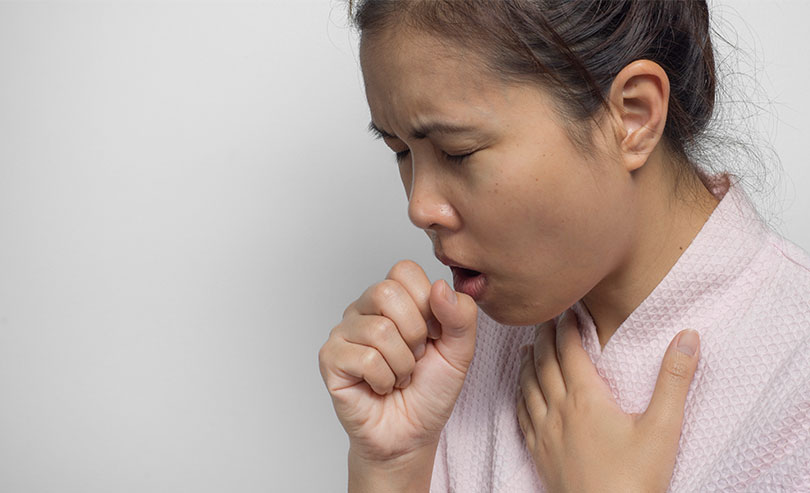Bronchial Asthma
The term bronchial asthma is used interchangeably with asthma. While there are different subtypes of asthma, such as exercise-induced asthma and cough variant asthma, bronchial asthma is not a subtype of asthma. It’s just a more accurate way to refer to the condition.
What Is Bronchial Asthma?
Bronchial asthma is a chronic respiratory disease that involves the airways leading to the lungs. Bronchi is the medical term for the tubes that carry air into the lungs.
In people with bronchial asthma, the bronchial tubes become hyperreactive, which causes obstruction of the airways. Bronchial asthma involves inflammation and constriction of the airways.
People with bronchial asthma may experience a flare-up of symptoms and then have periods of time when breathing is normal. Various factors can contribute to symptoms. For example, an allergen may irritate the airways.
If the airways are irritated, the bronchi may go into spasms. The bronchospasms cause the airways to narrow, which leads to a decrease in the amount of air that can go through the bronchi and reach the lungs.
In addition to constriction of the bronchi, the lining of the airways may become inflamed, which also contributes to trouble breathing. Lastly, increased mucus production may also occur. The combination of all three factors leads to typical bronchial asthma symptoms.
What Causes Bronchial Asthma?
The cause of bronchial asthma is not entirely known. There is also currently no way to prevent the condition. But researchers think a combination of genetic factors and environmental triggers may lead to bronchial asthma. For instance, if you have a parent who has bronchial asthma, you are more likely to develop the condition.
Having allergies or a family history of allergies also increases your risk. Additional risk factors include having frequent respiratory infections as a baby or young child, and smoking or being around secondhand smoke.
People who are obese or who were born prematurely also have an increased risk of developing bronchial asthma.
Bronchial Asthma Symptoms
Symptoms of bronchial asthma can vary from person to person. Not everyone will experience all the same symptoms. Also, symptoms might even vary in the same person with each asthma flare-up.
Bronchial asthma can develop at any age, including during childhood. Some children who develop the condition may outgrow it or experience less frequent symptoms as they get older. For other people, symptoms may become worse as they age or develop later in life.
Symptoms can be mild, moderate or severe. Symptoms may also be worse certain times of the year when common allergens, such as pollen, are at a high. Some people also have symptoms of bronchial asthma primarily after exercise.
Common asthma symptoms include the following:
- Tightness in the chest
- Shortness of breath
- Wheezing
- Coughing, especially at night
- Chest pressure
Bronchial Asthma Diagnosis
Symptoms of bronchial asthma can be similar to other types of lung disease. So, it might be necessary to rule out other conditions.
Bronchial asthma is often diagnosed through a combination of methods: lung function tests, a physical exam, and a review of symptoms.
Typically, the doctor will ask questions about symptoms and perform a physical exam, which includes listening to the lungs. Often if an individual is experiencing a bronchial asthma attack, wheezing may be heard.
Diagnostic tests, such as a chest x-ray and pulmonary function tests, are also ordered. A chest x-ray helps rule out other lung conditions, such as pneumonia.
Pulmonary function tests involve various breathing tests, such as an airway resistance test, spirometry and a methacholine challenge. The results of each test are compared to the predicted values that are considered normal for a person’s age, sex and height. The results of the tests along with symptoms help a doctor diagnose bronchial asthma.
It's important that you know what to do during an asthma attack and when to seek professional help. Here are steps to prevent attacks from occurring.
Treatment for Bronchial Asthma
Treatment for bronchial asthma involves a combination of education, medication and lifestyle changes. Usually, a multifaceted approach is the most effective way to manage bronchial asthma.
Common treatment includes the following:
Patient Education
One of the first steps in treating bronchial asthma involves patients participating in a structured patient education program. It may be a class or a one-on-one session with the doctor. Asthma education should include information about ways to reduce attacks, how to control symptoms, and how to handle an asthma emergency situation.
Understanding as much as possible about bronchial asthma helps you know how to manage symptoms and prevent flare-ups.
Inhaled Medications
Different types or classifications of inhaled medications are one of the main treatments for bronchial asthma. The combination of medications used to treat the condition often depends on the severity and frequency of symptoms.
Medications may include inhaled corticosteroids, which calm down the inflammation of the lungs. They have to be taken regularly, even if symptoms are not present. Inhaled corticosteroids are considered anti-inflammatory medications and decrease the swelling in the bronchi. Taking inhaled corticosteroids often leads to fewer flare-ups of bronchial asthma symptoms, less sensitive airways and decreased lung damage.
Bronchodilators, which can be fast-acting or long-acting, are also often part of a bronchial asthma treatment plan. Both types of bronchodilators work by relaxing the airways, which promotes dilation or widening.
Fast-acting bronchodilators, such as albuterol, work quickly just like the name implies. They are taken to treat sudden symptoms. Long-acting bronchodilators have a slower onset but last longer. Because they do not work right away, they are not taken to treat sudden symptoms. Instead, they are taken daily to prevent symptoms.
Other types of medications are also used to treat asthma. For example, combination medications that include both a steroid and a long-acting beta-agonists are also sometimes prescribed to treat bronchial asthma.
Bronchial asthma medications can be taken in a few different ways. For instance, respiratory medications may be taken through an inhaler, nebulizer or a dry powder inhaler.
Reducing Exposure to Allergens
Symptoms of bronchial asthma may be triggered by certain allergens. Allergens are substances that elicit an unwarranted strong response from the immune system. Common allergens that may trigger an asthma attack include mold, grass and dust.
Learning to identify possible allergens and developing ways to decrease exposure can greatly reduce symptoms of bronchial asthma.







